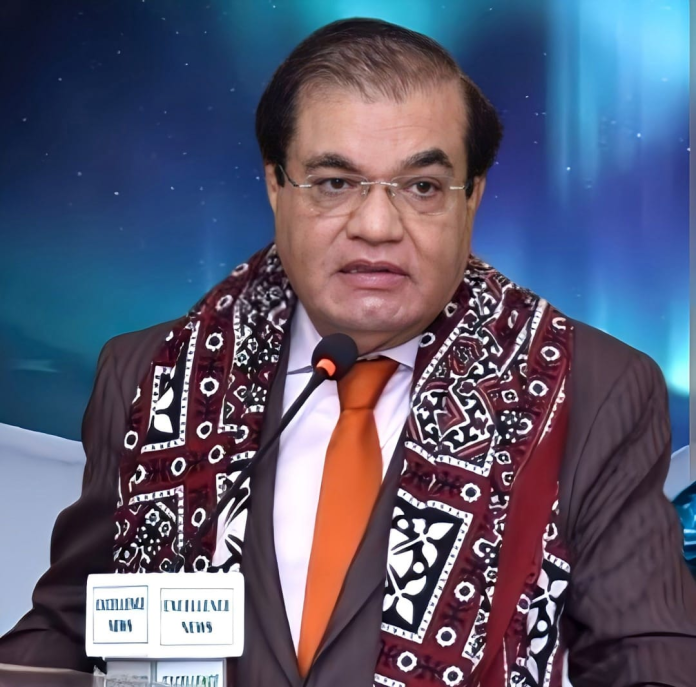ISLAMABAD, Nov 14 (DNA):The Chairman of National Business Group Pakistan, the President of the Pakistan Businessmen and Intellectuals Forum, the President of All Karachi Industrial Alliance, the Chairman of the FPCCI Advisory Board, and the President and former provincial minister, Mian Zahid Hussain, said on Thursday that the current tax system is very inefficient and has failed to impose taxes on people according to their resources.
He said that Pakistan has no future without a balanced and digital tax system as the current system is not working.
Mian Zahid Hussain said that a policy of placing the entire burden of taxes on the salaried class, corporate sector and industrial sector can never succeed.
Talking to the business community, the veteran business leader said that huge sectors of the economy have been exempted from taxes or are undertaxed, which is why people are inclined towards these non-productive sectors instead of industrialization.
Due to this tendency, neither industry nor exports develop in Pakistan, and unemployment is increasing.
Mian Zahid Hussain said that the Finance Minister has revealed that no country wants to keep its capital in the State Bank of Pakistan and is not ready to roll over the debt.
He said that friendly countries also want Pakistan to stand on its feet now. He said the IMF is also uneasy due to Pakistan’s failure to meet its quarterly revenue target.
The IMF is uncomfortable; otherwise, it would not have imposed such strict conditions, and an early review would not have been needed.
Mian Zahid Hussain said that before approving the loan, the IMF had imposed a condition to roll over deposits and loans from friendly countries, which was implemented with incredible difficulty.
He warned that this facility could end at any time, which is worrisome because a large part of foreign exchange reserves consists of deposits from friendly countries.
During the PTI regime, the IMF suspended its program, prompting friendly countries to take strict action. As a result, Pakistan’s confidence in the global market was severely affected, and the value of the rupee was eroded.
The IMF is worried about the revenue shortfall, and the government is also considering various options, including mini-budgets and increasing the burden on taxpayers.
In these circumstances, the business community wonders whether the recent interest rate cut will be helpful. Mian Zahid Hussain further said that according to the promise made to the public, no special environment has been created for domestic and foreign investment, and the tax base has not been widened.
The best option for the government is to make the tax structure fairer to reduce the tax burden on the middle class while bringing the under-taxed sectors into the tax net and digitizing the economy. Tax collection efforts through enforcement will only increase corruption instead of taxes.

















